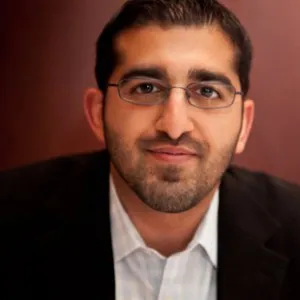“We are very very bullish on India,” Paul Singh, Partner, 500 Startups

The global investors’ ecosystem has been rejuvenated by the hope that developing economies from the APAC region have given to it. Countries such as India, China and Brazil are considered lucrative in terms of large scale investments into various macro & micro-economic segments. India, particularly, has seen a considerable interest from global investors in its thriving startup ecosystem. 500 Startups is one such seedfund cum incubator highly optimistic about Indian startups.
500 Startups was founded in 2010 by angel investor and former PayPal executive Dave McClure. In June 2012, the firm announced that it is raising a $50 million second fund. Being bullish on nations such as India, a considerable amount of this fund will be set aside for the country’s startups. We recently caught with Paul Singh, Partner at 500 Startups, to know more about their plans for India.
“We have about 5 investments in India as of now, and we want to aggressively grow that number. By this time next year, we should probably have about 25 investments in the region. We don’t really have a budget or a quota, but if we start finding good companies, we are going to write cheques. Let us say, if we like 50 of them, we are going to invest in 50. We are very very bullish on India,” says Paul Singh, Partner, 500 Startups.
He goes on to say that 500 Startups has made about 350 investments across 20 countries so far, but the two markets that they are very interested in right now are Brazil and India. “We want to be especially aggressive in these two markets. We will actually be hiring somebody in the region, probably by the end of this quarter. We are actively looking at people in these regions, and you will see us much more often here, and we will have a full-time person based in India by the end of this year.”

“The reason why we believe we can add a lot of value to startups in India is that if you look at America we have spent last 15 years building internet businesses. We had a few big wins like Amazon, PayPal and Facebook, and I believe that by taking people with functional expertise from these companies (we have a huge mentor network that we have hand-picked from various companies in the US and around the world) we can give Indian founders the access to them. We want to bring this functional expertise to India; we want to help them climb the learning curve faster,” adds Singh.
India’s most attractive feature is the domestic consumption. With a population of 1.2 billion, it is the second most populous country in the world after China. This opportunity is a challenge as well. Singh says that they are yet to figure out a way in which they will manage the massive deal-inflow. He adds that such a problem is unique to India, but as they are very bullish on the country, it’s just a matter of time before they spread their wings entirely.
“I actually feel that the world is not defined by the geopolitical boundaries, I see it actually differing by language and culture. If you actually think about it, the world is divided into five major languages: English, Mandarin, Portuguese, Spanish, and Hindi. So, India as a culture exists everywhere. There are millions of Indians in the US and everywhere else, I would say that we are very bullish on investing in that language and culture. We want to invest in companies that are building something for that culture,” adds Singh.
The trend of investing in the culture of a region is an emerging one. 500 Startups wishes to bank on this trend. “We will make a few mistakes in the process, but in the process we are going to learn a lot from India. India is going to teach us a lot and I am very very excited to be there,” says Paul, signing off.
Website: 500 Startups







